Porsche Casts Doubt Upon Combustion Ban Timeline

While we’re constantly hearing about tightening emissions regulations, the relevant timelines issued by government actors are rarely adhered to. Electric vehicle subsidies went from temporary to indefinite and combustion bans have gone from right around the corner to anyone’s guess. This is also true of the industry itself, which often makes bold promises designed to appease a subset of the public only to repeatedly move the target date back a few years.
With this in mind, Porsche’s CFO was recently quoted as saying European combustion bans will probably need to be delayed and there’s good reason to believe him.
As things currently stand, the European Union has plotted banning the sale of new combustion-engine cars by 2030. However, Porsche Chief Financial Officer Lutz Meschke was quoted by Automotive News on Thursday casting some doubts.
"There's a lot of discussions right now around the end of the combustion engine," Meschke said in Singapore. "I think it could be delayed."
Despite Europe having adopted battery electric vehicles far more quickly than North America, the market is still confronting a lot of the same problems. In 2022, the EU estimated that 21.6-percent of all new car registrations were electric vehicles. That number was presumed to be around 5.9 percent in the United States, according to data accumulated from Kelly Blue Book.
While the EU does tend to lump plug-in hybrids into EV sales tabulations, the region is still outpacing the United States and Canada in terms of both PHEV and BEV volumes. But we continue to see similar complaints about public charging sites, fumbled vehicle launches, and have witnessed global electric sales begin to plateau by summer of 2023. Manufacturers have also signaled they’ll need more time to finish constructing EV facilities and started grumbling about subsidies being cut off.
It appears that European electrification efforts are confronting the same issues faced everywhere — leading to predictable results. UK Prime Minister Rishi Sunak announced the country would be pushing back a national combustion ban until 2035 last September and everyone is wondering if the European Commission will follow suit.
From Automotive News Europe:
A slowdown in EV orders has thrown into question whether the European Union is on track for the phaseout, which represents one of the most ambitious efforts to curb carbon emissions.
The region's consumers have been put off by a lack of reliable charging networks, persistently high prices and the rollback of EV incentives. The U.K. has already postponed its planned ban of new gasoline and diesel models by five years to 2035.
While manufacturers of premium and luxury EVs can work without subsidies, cutting them from the volume segment is wrong, said Meschke, who spoke on the sidelines of the unveiling of Porsche's long-delayed electric Macan SUV.
"We have to see how steep the ramp-up curve is in coming years," Meschke said. "If we have a situation like now, with certain reluctance to buy electric cars in Europe, then maybe the subsidies will come back."
Your author has repeatedly suggested ending electric vehicle subsidies, so it’s impossible to provide an unbiased take on the value of EV subsidies. The issue has also become stupidly divided along political lines, ensuring that hoards of people will cheer for opposing outcomes without giving it much thought. But it’s undeniable that the automotive sector is highly influential thanks to aggressive lobbying efforts and grossly overestimated its abilities to transition toward all electric vehicles.
Some have even alleged that the industry has intentionally sabotaged electric vehicles to use them as a scapegoat for controversial technologies companies wanted to pioneer before moving them into mainstream combustion models. That perhaps requires too much creative thinking to be seriously entertained without hard evidence. Botched product launches can be attributed to a generalized downturn in quality control and an over-reliance on software. Loathed public charging stations (Tesla Superchargers excluded) may also just be the result of the involved companies underestimating the level of maintenance required.
But the above doesn’t preclude automakers from wanting to take advantage of government money. As part of Volkswagen Group, Porsche is technically supposed to be committed toward transitioning its fleet to all-electric vehicles. However, the company is also trying to pioneer synthetic fuels (often called “e-fuels”) it has framed to the public as environmentally sound. Germany even found itself at odds with the European Commission after the latter decided against categorizing vehicles using synthetic fuel to fall outside prospective combustion bans. The reasoning behind this looks to be purely economical, as Germany sees e-fuels as a burgeoning industry with serious potential that it also just happens to be leading.
The largest piece of the puzzle is likely public opinion, however. Despite years of the industry trying to assure drivers that EV costs would be even to combustion vehicles by 2025, we’re not even close to that becoming a reality. Electric automobiles tend to be purchased by wealthier individuals as a secondary vehicle and (with notable exceptions) trade at much higher prices. They also depreciate more quickly, making them less attractive to the kind of people that care about resale values.
These factors have joined together with evaporating incentives to paint kind of a bleak picture for mainstream electrification. EV volumes remain slanted toward the luxury market at a time when the average person's purchasing power has declined, leaving the truly economical models to compete directly with gasoline-reliant alternatives boasting lower price tags. Assuming EVs offered a superior experience across the board, this wouldn’t be an issue. But electric cars tend to thrive under specific use cases, whereas combustion vehicles tend to be versatile and already have an established infrastructure to support them.
Now we're seeing automakers and governments that have been blindly championing the creation of "ultra-low emissions zones," and endorsing a forced pivot toward all-electric vehicles, openly questioning the feasibility of the very thing they've been fighting for since the early 2000s. We should probably take Porsche’s comments seriously.
[Image: Porsche]
Become a TTAC insider. Get the latest news, features, TTAC takes, and everything else that gets to the truth about cars first by subscribing to our newsletter.

A staunch consumer advocate tracking industry trends and regulation. Before joining TTAC, Matt spent a decade working for marketing and research firms based in NYC. Clients included several of the world’s largest automakers, global tire brands, and aftermarket part suppliers. Dissatisfied with the corporate world and resentful of having to wear suits everyday, he pivoted to writing about cars. Since then, that man has become an ardent supporter of the right-to-repair movement, been interviewed on the auto industry by national radio broadcasts, driven more rental cars than anyone ever should, participated in amateur rallying events, and received the requisite minimum training as sanctioned by the SCCA. Handy with a wrench, Matt grew up surrounded by Detroit auto workers and managed to get a pizza delivery job before he was legally eligible. He later found himself driving box trucks through Manhattan, guaranteeing future sympathy for actual truckers. He continues to conduct research pertaining to the automotive sector as an independent contractor and has since moved back to his native Michigan, closer to where the cars are born. A contrarian, Matt claims to prefer understeer — stating that front and all-wheel drive vehicles cater best to his driving style.
More by Matt Posky
Latest Car Reviews
Read moreLatest Product Reviews
Read moreRecent Comments
- NotMyCircusNotMyMonkeys youll find another cult soon enough. it will be ok, tender snowflake. your tears will dry eventually :)
- NJRide A question and a point:1) What were hybrids at compared to last year? And plug in bs a regular hybrid?2) How can state governments like mine possibly think 40 percent of sales will be electric in 3 years?
- Steve S. Steve was a car guy. In his younger years he owned a couple of European cars that drained his bank account but looked great and were fun to drive while doing it. This was not a problem when he was working at a good paying job at an aerospace company that supplied the likes of Boeing and Lockheed-Martin, but after he was laid off he had to work a number of crummy temp jobs in order to keep paying the rent, and after his high-mileage BMW was totaled in an accident, he took the insurance payout and decided to get something a little less high maintenance. But what to get? A Volkswagen? Maybe a Volvo? No, he knew that the parts for those were just as expensive and they had the same reputation for spending a lot of time in the shop as any other European make. Steve was sick and tired of driving down that road."Just give me four wheels and a seat," said Steve to himself. "I'll buy something cooler later when my work situation improves".His insurance company was about to stop paying for the rental car he was driving, so he had to make a decision in a hurry. He was not really a fan of domestics but he knew that they were generally reliable and were cheap to fix when they did break, so he decided to go to the nearest dealership and throw a dart at something.On the lot was a two year old Pontiac Sunfire. It had 38,000 miles on it and was clean inside and out. It looked reasonably sporty, and Steve knew that GM had been producing the J-car for so long that they pretty much worked the bugs out of it. After taking a test drive and deciding that the Ecotec engine made adequate power he made a deal. The insurance check paid for about half of it, and he financed the rest at a decent rate which he paid off within a year.Steve's luck took a turn for the better when he was offered a job working for the federal government. It had been months since he went on the government jobs website and threw darts at job listings, so he was surprised at the offer. It was far from his dream job, and it didn't pay a lot, but it was stable and had good benefits. It was the "four wheels and a seat" of jobs. "I can do this temporarily while I find a better job", he told himself.But the year 2007 saw the worst economic crash since the Great Depression. Millions of people were losing their jobs, the housing market was in a free fall, people were declaring bankruptcy left and right, and the temporary job began to look more and more permanent. Steve didn't like his job, and he hated his supervisors, but he considered himself lucky that he was working when so many people were not. And the federal government didn't lay people off.So he settled in for the long haul. That meant keeping the Sunfire. He didn't enjoy it, but he didn't hate it either, and it did everything he asked of it without complaint.Eventually he found a way to tolerate his job too, and he built seniority while paying off his debts. There was a certain feeling of comfort and satisfaction of being debt-free, and he even began to build some savings, which was increasingly important for someone now in their forties.Another bit of luck came a few years later when Steve's landlord decided to sell the house Steve was renting, at the bottom of the housing market, and offered it to Steve for what he had in it. Steve's house was small and cramped, and he didn't really like it, but thanks to his savings and good credit he became a homeowner in an up and coming neighborhood.Fourteen years later Steve was still working that temporary job, still living in that cramped little house that he now hated, and still drove the Sunfire because it wouldn't die. For years now he dreamed of making a change, but then the pandemic happened and threw the economy and life in general into chaos. Steve weathered the pandemic, kept his job when millions of people were losing theirs, and sheltered in place in that crummy little house, with Netflix, HBO, and a dozen other streaming services keeping him company, and drove to and from work in the Sunfire because it was four wheels and a seat and that's all he needed for now.Steve's life was secure, but a kind of dullness had set in. He existed, but the fire went out; even when the pandemic ended and life returned to normal Steve's life went on as it had for years; an endless Groundhog Day of work, home, work, home. He never got his real-estate license or finished college and got his bachelor's, never got a better job, never used his passport to do some traveling in Europe. He lost interest in cars. "To think how much money I wasted on hot cars when I was younger", he said to himself. He never married and lost interest in dating. "No woman would want me anyway. I've gotten so dull and uninteresting that I even bore myself".Eventually the Sunfire began to give trouble. With 200,000 miles on the clock it was leaking oil, developing electrical gremlins, and wallow around on blown-out shocks. Steve wasn't hurting for money and thought about treating himself to a new car. "A BMW 3-series, maybe. Or maybe an Alfa Romeo Giulia!" He began to peruse the listings on Autotrader. "Maybe this is just what I need to pull out of this funk. Put a little fun back in my life. Yeah, and maybe go back to the gym, and who knows, start dating again and do some traveling while I'm still young enough to enjoy it!"Then his father passed away and left him a low-mileage Ford. Steve didn't like it or hate it, but it was four wheels and a seat, and that's all he needed right now."Is it too late to have a mid-life crisis?" Steve thought to himself. For what he needed more than that stable job, that house with an enviably small mortgage payment, and that reliable car was a good kick in the hindquarters. "What the hell am I afraid of? I should be afraid that things will never change!"But the depression was like a drug, a numbness that they call "dysthymia"; where you're neither here or there, alive or dead, happy or sad. It was a persistent overcast, a low ceiling that kept him grounded. The Sunfire sat in his driveway getting buried by the needles from his neighbor's overhanging pine trees which were planted right on the property line. "Those f---ing pine trees! That's another thing I hate about this damn house!" Eventually the Sunfire wouldn't start. "I don't blame you", he said to the car as he trudged past it to drive the Ford to another Groundhog Day at that miserable job.
- Yuda Cool. Cept we need oil and such products. Not just for fuel but other stuff as well. The world isn't exactly ready to move to wind and solar and whatever other bs, the technology simply isn't here yetNot to mention it's too friggin expensive, the equipment is still too niche and expensive as it stands
- Rna65689660 Picked up my wife’s 2024 Bronco Sport Bad Lands!



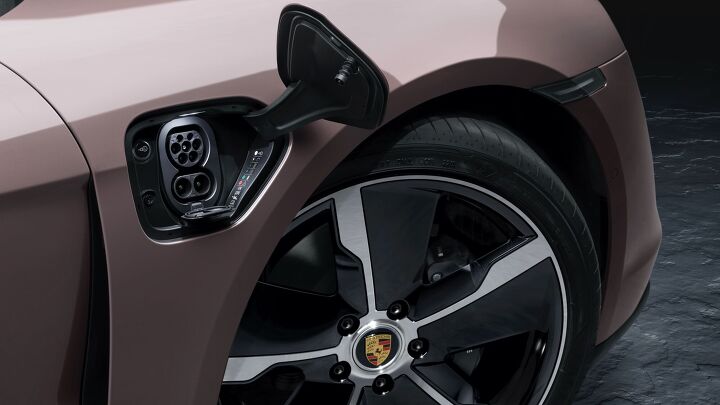












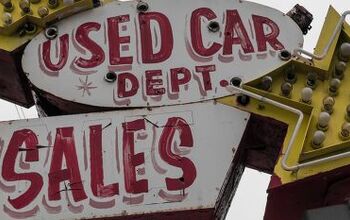










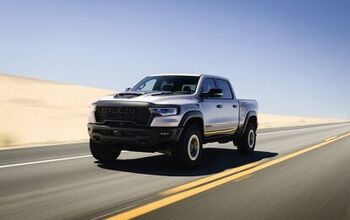

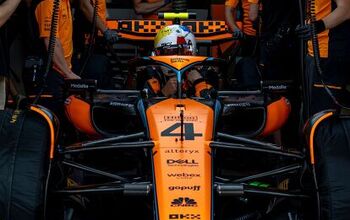



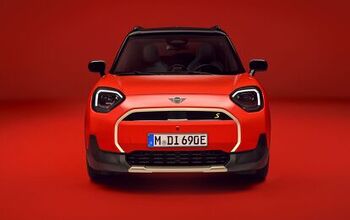
Comments
Join the conversation
Relevant
Peter Puffers! TTAC B&Bers in Disguise!